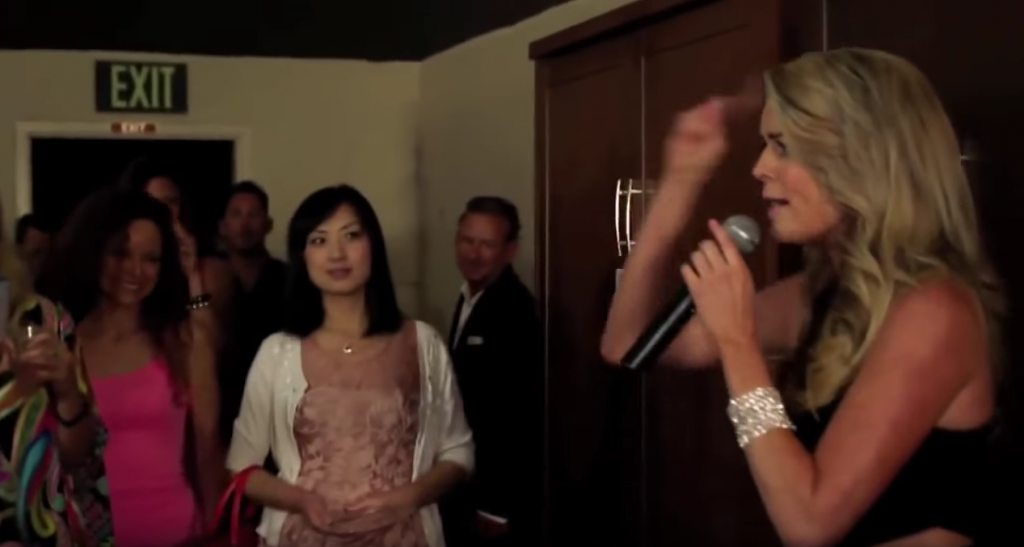
By Lauren Kelly, Editor-in-Chief
Overall, North American society has mostly been getting more and more progressive in terms of what jokes we don’t make and what words we don’t use. Racist jokes, particularly, used to be much more common than they are today. That is, unless you’re talking about those made against Asian people, who are apparently still thought of as “acceptable” targets.
This January, Steve Harvey made a joke on his talk show about a book called How to Date a White Woman: A Practical Guide for Asian Men. His joke—if you can call it that—went like this: “That’s one page. ‘Excuse me, do you like Asian men?’ ‘No.’ ‘Thank you.’” I shouldn’t really need to explain why this is awful. It just taps into a history of emasculating Asian men and treating them as undesirable sexually. And it’s just not true. As someone who is in a long term relationship with a Chinese man, and as someone with white friends—both men and women—who are in relationships with Asian men, I can’t wrap my head around this stereotype. The worst thing is that there was minimal backlash. Sure, some people wrote articles about it, but it wasn’t the career-ending catastrophe it might have been if he targeted a book about people of a different race.
Last year, Trump-supporter, beauty queen, and apparent empowerer of women Jennifer Murphy performed her original song “I Want to Be Ninja” at the launch of her line of murphy beds. Complete with an incredibly stereotypical Chinese accent, broken grammar (see title), and mentions of taking people down to Chinatown, Murphy showcased that she is a) racist, b) tone-deaf, and c) very confused about where ninjas are from. It is a spectacle, and it’s made all the better by the one Asian woman standing next to her giving her a stoic side eye the entire performance. Murphy has defended it by saying that she just wanted to make people smile and that anyone upset about it should get a life. Like with Harvey, there was backlash, but it would have been much worse if she was targeting a different group.
It’s everywhere. On TV, we still have Han from 2 Broke Girls, who is a short, purposefully- and consistently-emasculated Korean man with poor English skills that is constantly torn down by his employees. At the 2016 Oscars, which featured a lot of discussion about inclusion and racism, Chris Rock brought out Asian children instead of the Price Water House accountants, and Sacha Baron Cohen referred to “hard-working little yellow people with tiny dongs,” only to pull back and say he meant Minions, implying that if you thought he meant Asian men, you were the racist, not him.
Online and in real life, jokes and stereotypes are abundant. Most threads on Reddit about Asian people devolve into “Herro Kitty”-type crap. I hear this in real life too, mimicking people at Chinese food restaurants or copying accents (“But that’s how they say it!”). Asian women on dating sites are inundated with racist messages perpetuating stereotypes about them. People often feel like it’s acceptable to ask Asian-Canadians where they’re really from (’cause they’re clearly not really Canadian!), comment on how well they speak English, talk about their math skills, and commit other shitty microaggressions. And let’s be real—most of us have done some of these, because they’re viewed as culturally acceptable. It’s just not a social taboo like a lot of other things have become, but it should be. All of these just “other” people, instead of including them.
We seem to have largely agreed that making fun of people of colour is bad, but that obviously doesn’t extend to everyone. This most likely has a lot to do with the level of oppression certain groups face in society. In the business world, Black, Hispanic, and Indigenous men and women, among those of other races, often face a higher amount of prejudice that white and Asian men and women do. That doesn’t make this stuff okay.
The disturbing thing is, even if there is less oppression of Chinese- and Japanese-Canadians than some other minority groups now, extreme oppression is part of our very recent past. In the first half of the 20th century, the majority of European British Columbians viewed these immigrants as a scourge on society, as people who would never assimilate, and as people who were just here to steal our jobs and lower the moral standards of European society (sound familiar?). Actually, “people” is taking it too far—legally, the Japanese and Chinese were not included in the definition of “person” in British Columbia. Our legislature consistently pushed through anti-Asian motions, and our premiers ran on anti-Asian immigration platforms. Head taxes were put in place and constantly raised to block more Chinese people from immigrating. During World War II, the B.C. government forcibly interned all of our Japanese-Canadian residents and sold their property and businesses against recommendations by people who had done research on whether they actually posed a threat. It was only after World War II that things started to improve incrementally. These are things we don’t really talk about anymore, but they’re also incredibly important parts of our history that we should not avoid.
We need to push forward together. No person should be othered or stereotyped. Anywhere, but especially in a place as diverse as Canada, we should know treat everyone as equally Canadian, whether their family goes back hundreds of years in Canada or just a couple months. Everyone should be treated as an unacceptable target for shitty, racist jokes and stereotypes.

